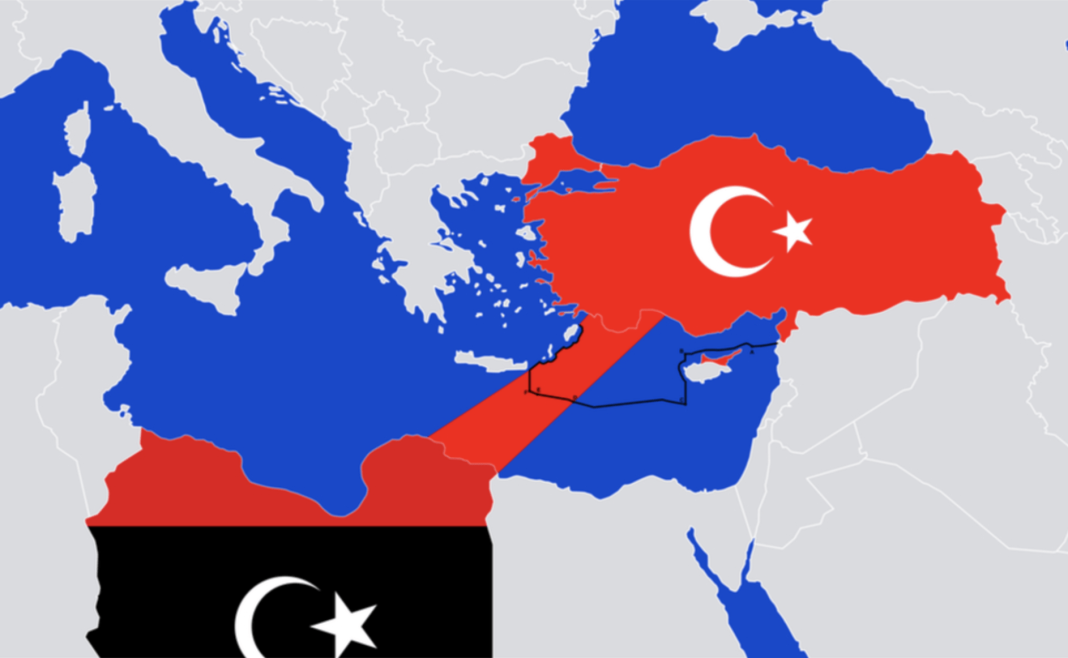By Janet Ekstract
ISTANBUL (TURKISH JOURNAL)- Libya’s interim government sworn in just a few months ago, still faces challenges – the most daunting being the thousands of foreign mercenaries remaining in the North African nation. Though the last few months in Libya has seen a resumption of air space reopened between countries as well as consulates and new projects renewed – the question on the minds of experts and analysts on Libya is whether genuine political stability is possible.
Amid the renewal of projects and country ties, lies a sinister reality: deep rivalries within Libya’s factions that appear to be resurfacing. As prominent analyst Imad Jalloul commented: “After an unprecedented breakthrough over the past two months, we have entered a new phase of doubt – and a resurgence of divisions between east and west.” Libya’s Interim Prime Minister Abulhamid Debeibah has a formidable job ahead of him to unify institutions in Libya and prepare for elections to be held on December 24.
Analysts warn that major pitfalls still remain in moving Libya toward a genuine path to peace. One incident last week, highlights imminent dangers that still loom as dozens of gunmen made a show of force at a hotel used as headquarters by Libya’s presidential council in Tripoli. The incident took place in response to remarks by Libya’s interim Foreign Minister Najla al-Mangoush from eastern Libya who demanded that Turkey withdraw troops it deployed during the civil war. There was a huge backlash after Mangoush’s remark that Turkey “cooperate to put an end to the presence of all foreign forces.” But controversial religious leader Sadek al-Ghariani known as the Mufti of Libya, commented: “We must never forget what the Turks have done for us.” It is widely acknowledged that it was Turkish support that led to victory for western Libyan forces last June against warlord Khalifa Haftar who had attempted to capture Tripoli in a year-long offensive backed by Russia and the UAE.
Meanwhile, the UN Security Council has repeatedly called for the withdrawal of all foreign troops and mercenaries now estimated to be 20,000 strong. The foreign fighters are reported to be Russians from the private Kremlin-linked Wagner Group, fighters from Chad and Sudan as well as Syrians and Turkish soldiers deployed under a bilateral agreement with Libya’s previous unity government also supported by the UN. Though UN-led efforts to mediate have made some progress, some analysts fear the “security track” isn’t on par with the “political one.” A primary factor is interim Prime Minister Debeibah’s reliance on a system of quota-based power sharing known as “muhasasa.”
The largest thorn in the new interim government’s side is the fact that Haftar forces remain in control of the east and part of the south of Libya. In late April, the government postponed Debeibah’s first visit to eastern Libya and a cabinet meeting in Benghazi after an advance security team was forced to return from the city’s airport. Analyst Jalloul warned: “The government’s chances of organizing elections after less than seven months are very slim.” There is also increased doubt about the December 24 vote as another analyst on Libya, Mohamed Elijarh commented : “Significant challenges remain that could prevent the holding of elections and derail the country’s political and institutional reunification.” Elijarh made the comment on the Al-Monitor website in an editorial on Monday. He added that the risks include foreign forces and mercenaries remaining in Libya for the long term as well as the possibility of a return to conflict.
Whatever happens in the ensuing months, Libya’s interim Prime Minister Debeibah will be forced to tread very carefully in order to maintain balance between this North African nation’s diverse factions. The fact that mercenaries and foreign forces still remain in Libya, signifies that too many foreign players have a stake set in the sand in a nation that holds Africa’s largest crude oil reserves. This means that Debeibah and his government will need to be cautious about any future moves while making sure they’re on track to meet a deadline for elections set for December 24.




